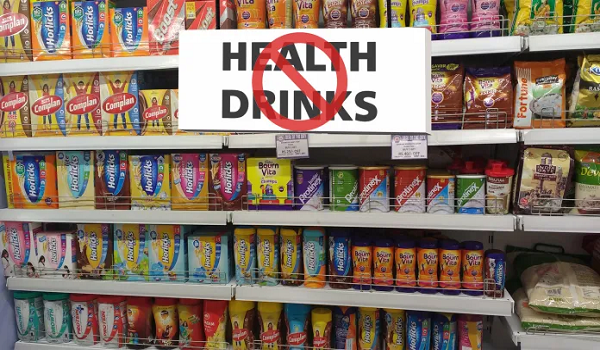Due to undefined food laws and growing concerns over misleading labelling, the Indian government has instructed e-commerce platforms to refrain from categorizing Bournvita and other beverages as ‘health drinks’.
The Ministry of Commerce and Industry issued a notification advising all e-commerce companies to eliminate drinks, including Bournvita, from the ‘health drinks’ category on their platforms.
The controversy surrounding Cadbury Bournvita arose last year when a social media influencer raised alarms about its high sugar content. Despite Mondelez India, the brand’s owner, sending a legal notice to the influencer and prompting the removal of the video, the issue escalated. The National Commission for Protection of Child Rights (NCPCR) intervened, urging the brand to withdraw all misleading packaging, advertising, and labels.
Earlier this month, the Food Safety and Standards Authority of India (FSSAI) also directed e-commerce portals to cease labelling dairy-based or malt-based beverages as ‘health drinks’.
The government’s directive follows an inquiry by NCPCR, which found no specific definition of ‘health drink’ under the Food Safety and Standards (FSS) Act 2006. This move resonates with recent judicial actions, such as the Patanjali case, highlighting concerns about misleading marketing practices.
Santosh Desai, managing director of Futurebrands Consulting, suggests a broader governmental effort to curb misleading practices, possibly influenced by changing consumer preferences towards natural and chemical-free food options. A report by Wazir Advisors indicates a significant growth trajectory for the packaged health and wellness food and beverage market in India, projected to reach Rs 2,50,000 crore by 2026. This trend is expected to extend beyond metropolitan areas to Tier II cities, reflecting a shift in consumer demand towards functional foods to supplement nutrition intake.


